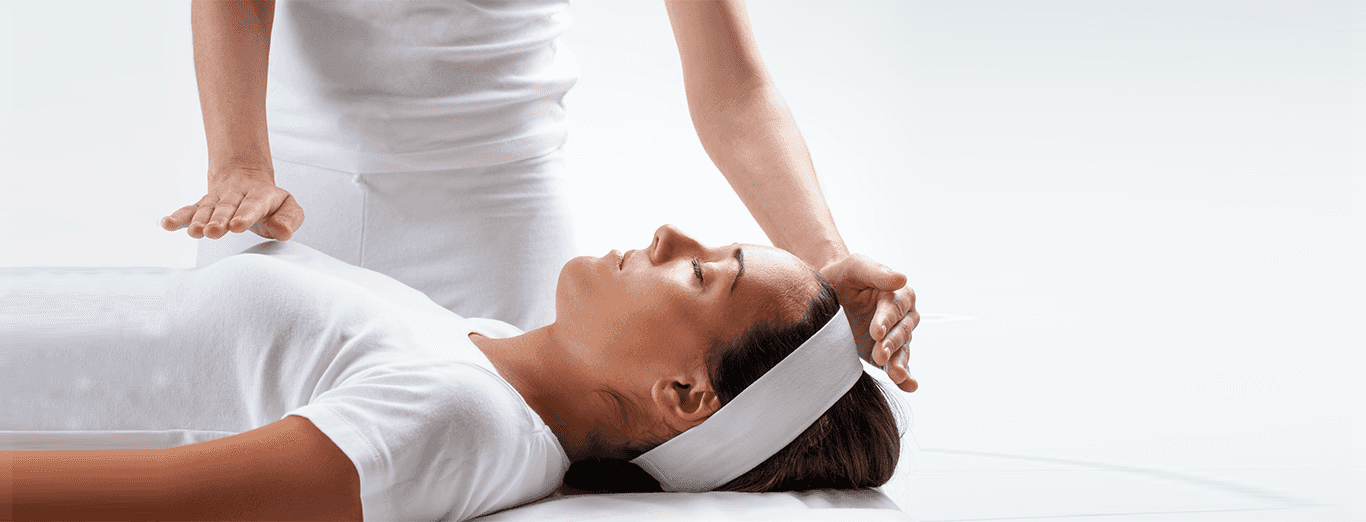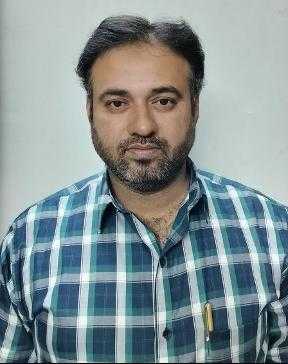
cardiac rehabilitation
Expert Physiotherapy at Home
Personalised Recovery Programmes
Trusted Physiotherapists. Real Results.
Patient Testimonials
Our Medical Team
Meet some of our experienced and dedicated healthcare professionals
Dr. Lokesh G
15 Years Experience
SPECIALIZATIONS
Experienced in Neurological rehabilitation, Orthopaedic physiotherapy, and Paediatric care
Delivers structured, high-impact treatment plans across neuro, ortho, and paediatrics—ensuring safety, comfort, and measurable recovery at every stage.
Dr. Mohammed Sarwar
15 Years Experience
SPECIALIZATIONS
Experienced in Neurological rehabilitation, Adult physiotherapy, and Paediatric care
Combines deep clinical expertise with a compassionate approach, supporting both adults and children through neuro and physical rehabilitation that promotes long-term independence and recovery.
Dr. Nelapati Divya
12 Years Experience
SPECIALIZATIONS
Skilled in Orthopaedic rehabilitation, Manual therapy techniques, and Paediatric physiotherapy
Brings a personalised, hands-on approach to healing—combining structural expertise with paediatric sensitivity to restore movement, relieve pain, and improve everyday function.
Dr. Naveen V
3 Years Experience
SPECIALIZATIONS
Trained in Pain management, Cardiac and Orthopaedic rehabilitation, Neurological care, and Neural tissue mobilisation
Brings clinical precision and empathy together—designing science-backed recovery protocols for pain relief, nerve mobilisation, and cardio-neuro-ortho rehabilitation across all age groups
Dr. Miloni Savla
2 Years Experience
SPECIALIZATIONS
Holds an MPT in Orthopaedics with a focus on Musculoskeletal rehabilitation and strength recovery
Delivers focused, movement-oriented therapy grounded in orthopaedic science—helping patients rebuild strength, restore function, and return to daily life with confidence

what is cardiac rehabilitation?
Cardiac rehabilitation is a complex and medically supervised program comprising of exercise and education to help people improve their heart health.
The main aims of cardiac rehab are reducing your risk factors, long-term management of your health, and protecting your heart. This is a broad term that involves the assessment and correction of other aspects like psychosocial factors, environment, and overall wellbeing.
It is an inter-professional intervention that requires not only the patient but also the doctors, nurses, physiotherapists, and caregivers like friends and family to play important roles.
what does cardiac rehabilitation involve?
There are three important components of a cardiac rehabilitation program including:
- Exercise and training: This involves the use of strength training and balance training to enable the cardiovascular system to become healthier and work better.
- Education: This involves educating the patient and her/his caregivers about lifestyle changes that you need to make to enjoy good cardiovascular health.
- Counseling: Suffering from cardiac issues can leave a lot of patients stressed and anxious. Counseling is an important part of cardiac rehabilitation that helps a person in learning how to manage stress.
who needs cardiac rehabilitation?
Anyone who has experienced mild, moderate, or severe cardiac diseases and undergone correctional surgery for them will benefit from a cardiac rehab program, especially physiotherapy. There are certain sets of people that benefit the most from cardiac rehabilitation. These include people who have had a:
- Heart attack
- Angina
- Congenital heart disease
- Stable heart failure
It also benefits patients who have undergone one of these cardiac procedures:
- Bypass surgery
- Cardiomyopathy
- Coronary angioplasty or stenting
- Heart valve replacement or repair
- Heart or lung transplant
what are the benefits of cardiac rehabilitation and physiotherapy?
Cardiac rehabilitation and especially cardiac rehab exercises play a critical role in managing heart-related complications and risks for patients who have suffered a cardiac event or procedure.
SOME OF THE MOST IMPORTANT BENEFITS INCLUDE:
- Fewer heart problem-related symptoms like fatigue, angina, breathlessness, etc.
- Physiotherapy greatly helps in containing the extent of damage that cardiac diseases can continue to do.
- Decreased chances of the recurrence of heart-related complications.
- Better adherence to the prescribed medications.
- Reduction in stress and anxiety.
- Improvement in the levels of endurance.
- Better understanding of one’s heart condition and ways it can be managed.
- The patient becomes more independent, mobile, and agile and is able to complete his daily tasks with minimal supervision.
- Physiotherapy helps in relieving the patient of risk factors like high cholesterol, high blood pressure, etc.
- Since physiotherapy helps in making the heart stronger and relieves one of the painful symptoms, it helps in reducing the number of hospital readmissions and hospital stays. This leads to lowered stress and saving of cost.
- Since a large number of patients with cardiac issues suffer from comorbid conditions like arthritis, back pains, diabetes, etc., physiotherapy helps in managing the symptoms of these issues as well.
- Physiotherapy has a good impact on better sleep patterns since it induces relaxation.
- It makes a person look fitter and healthier and this has a direct impact on her/his positivity and happiness.
- Physiotherapy has proved to be critical in reducing mortality.
what are the different phases of cardiac rehabilitation?
There are four cardiac rehabilitation phases that a patient needs to undergo to enjoy good heart health. These phases include:
Phase 1: The acute phase- This starts immediately, sometimes even on the same day after your surgery in the ICU, when the physiotherapist starts working with you to help you regain your mobility. This phase includes:
- Assess the level of your mobility and design a safe exercise program to improve your cardiac fitness.
- Address the risk factors.
- Prescribe assistive devices, if required, like a cane or walker to help you move around safely.
- Educate the patient and her/his family about the condition, risks associated, benefits, and the outlook.
Phase II: The subacute phase- This phase starts once you leave the hospital and lasts for usually three to six weeks. The aim here is to allow your safe return to mobility. This phase includes:
- Monitoring your response to the exercise and activity like warm-up sessions, light cardio exercises, resistance training, and cool-down sessions.
- Education about each exercise procedure and risk factors.
- Counseling on managing a healthy diet and a better lifestyle that involves low stress.
- Training the patient on how to self-monitor heart rate and the levels of exertion during exercise.
Phase III: Intensive outpatient therapy: This involves making a patient more independent and giving her/him the tools to manage their heart health. This includes:
- Training on how to manage your symptoms, heart rate, blood pressure levels, medications, and other requirements.
Phase IV: Maintenance: After a patient has participated in the last three phases, the last phase is about independent on-going conditioning. This involves:
- Continuing to follow the cardiac rehabilitation guidelines that you have learned in the last phases regarding exercise, activity, lifestyle, nutrition, etc. to enjoy good heart health.
- Being in regular touch with your doctor and physiotherapist to avoid any flare-ups in your condition.
which exercises help in cardiac rehabilitation?
‘What exercises are done in cardiac rehab’ is a common question and certainly an important one too. Since cardiac disorders are delicate, complex, and critical in nature, it is important to start your exercise program under supervision so as to avoid any risks and to alleviate the symptoms and problems.
A patient is likely to do these three main types of cardiac rehabilitation physiotherapy exercises:
- Flexibility exercises: These exercises give your muscles the necessary stretch and improve their strength, flexibility, and balance. These include stretching exercises, yoga, pilates, forward bends, tai chi, etc.
- Strength training: Strength training, by making your muscles make repetitive movements, make your muscles strong, more toned, and help in controlling your weight. They also help in bettering bone health. This includes lifting weights, using resistance tubes, and bands.
- Cardiovascular Cardio” exercises: Since these exercises let your body use more oxygen that has a direct impact on the health of your heart, the benefits of these include lower blood pressure levels, lower heart rate, and better breathing. These exercises include brisk walking, low-impact water aerobics, biking, light jogging, etc.
What Is The Role Of A Physiotherapist In Cardiac Rehabilitation?
A trained and experienced physiotherapist plays a central role in cardiac rehabilitation physiotherapy exercises. The involvement of a therapist has several important benefits including:
- It ensures compliance by the patients by helping them remain consistent in the physiotherapy program.
- The therapist will conduct a thorough assessment of your condition based on your age, the severity of the condition, and your medicals reports and design a customised plan for you. This helps patients in healing faster.
- Having a physiotherapist who develops an outcome-based therapy programme is more beneficial as compared to self-developed programmes.
- The presence of a physiotherapist eases the transition of a patient from the hospital to her/his home during the various phases of physiotherapy.
- The therapist educates you about each exercise and assesses your comfortability levels with each of them.
- She/he will begin the exercise program keeping in mind your health condition and the risk factors. This ensures your safety to a great extent.
- Having a therapist relieves your caregivers who may or may not be trained in physiotherapy and undergoing stress while trying to manage your treatment.
how can we help?
Portea is renowned for providing affordable, accessible, and world-class medical care at home. Our services encompass lab testing, medical equipment rentals, and doctor consultations for various issues. Among our crucial offerings is physiotherapy at home, specifically designed for cardiac rehabilitation.
KEY BENEFITS OF CHOOSING PORTEA:
- Comprehensive Physiotherapy Solutions: Portea offers personalized therapy plans tailored to each patient’s specific needs.
- Expert and Trained Therapists: Our professionals undergo rigorous screening, ensuring the best medical care for our patients. They are well-versed in advanced physiotherapy techniques like electrotherapy, hydrotherapy, biomechanics, and manual therapy.
- Risk Education: Therapists educate patients about exercise-related risk factors, preventing injuries or over-exertion, and avoiding the exacerbation of symptoms.
- Consistent Care at Home: Receive continuous care in the comfort of your home, eliminating travel time, injury risks, and transportation costs.
- Cost-Effective Solutions: Portea’s physiotherapy plans are 25-30 percent more affordable compared to hospital or clinic options, particularly beneficial for lifelong cardiac rehabilitation needs.
- Holistic Approach: Our therapists not only guide you through cardiac exercises but also offer advice on lifestyle management, postural education, and stress management.
With Portea, you’re not just getting cardiac rehabilitation physiotherapy; you’re gaining a partner in your journey to recovery and well-being. We also offer a range of superior healthcare services, including doctor consultations, medical equipment, nursing home care, and dedicated caretakers. Rely on us for top-tier healthcare solutions tailored to your requirements.
references
faqs
What is the duration of cardiac rehabilitation?
Cardiac rehabilitation, proven to lower cardiac mortality and enhance quality of life, typically spans a 12-week program.
What are the risks of cardiac rehab?
Heart-healthy lifestyle adjustments in cardiac rehab generally pose minimal risks. In rare instances, physical activity during rehab may lead to severe issues, such as muscle and bone injuries or potentially life-threatening heart rhythm problems.
Which foods and drinks to avoid after heart surgery?
Steer clear of saturated fat-rich options like liver, organ meats, eggs, whole milk, butter, cream, and whole-milk cheeses. Also, avoid high-salt choices such as luncheon meats, canned soups, canned spaghetti sauce, TV dinners, snack foods, and smoked fish.
At what point can I initiate cardiac rehabilitation following a stent procedure?
Typically, patients commence rehabilitation within a few days to a week post-stent, usually on an outpatient basis. However, it’s crucial to obtain approval from your doctors before starting. While advisable, it may not be suitable for every patient.
Is it possible for the heart muscle to recover from damage?
Following a heart attack, the damaged heart muscle undergoes healing through the formation of scar tissue. The healing process typically spans several weeks, contingent on the severity of the injury and individual healing rates. Despite damage, the heart is resilient.
References
Doctor Consultation
Nursing
Physiotherapy
Trained Attendant
Elder Care
Mother & Baby Care
Lab Tests
Medical Equipment
Speciality Pharma
Critical Care











